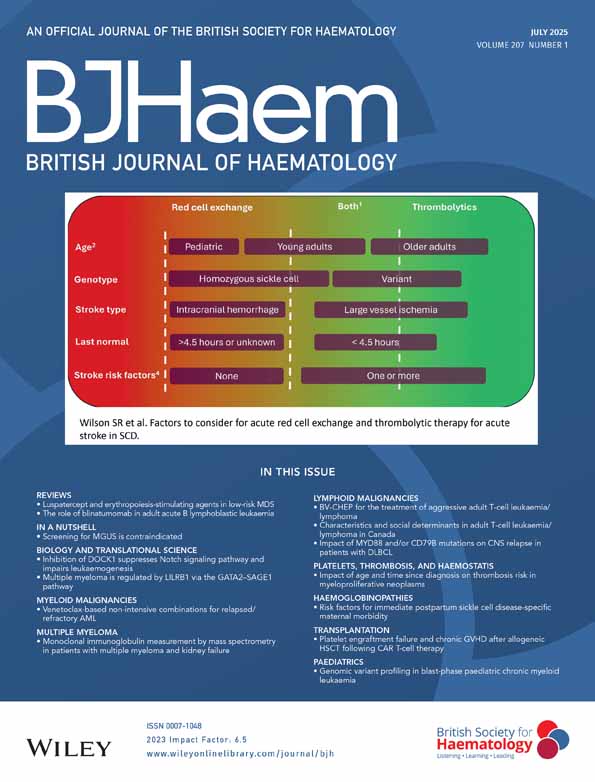Defective expression of the T-cell receptor-CD3 ζ chain in T-cell acute lymphoblastic leukaemia
Abstract
Summary. This study analysed the T-cell receptor (TCR)-CD3 ζ complex and the signal transduction apparatus of T-acute lymphoblastic leukaemia (T-ALL) blasts, and investigated the function of the ubiquitin-proteasome system. In all nine T-ALL samples studied, the leukaemic cells showed a marked reduction in the expression of the ζ chain, while a variety of tyrosine kinases (p56lck, ZAP70 and SYK) were normally present. There was no expression of the FcεRIγ chain. To confirm that this aberration was specific to immature T-ALL blasts, we investigated two patients with lymphoproliferative disorders of granular lymphocytes (LDGL), characterized by the expansion of mature T lymphocytes and found normal ζ chain expression. The reduction of the ζ chain protein was not reversible after 72 h stimulation with the anti-CD3 monoclonal antibody and interleukin 2, either alone or in combination. Northern blot analysis indicated that the reduced protein expression did not correspond to a defect at the mRNA level, nor were mutations in the coding region of the ζ chain found. We, therefore, hypothesized that the observed reduction of protein expression in T-ALL blasts could be secondary to an increased degradation at the proteasome level. Following selective inhibition of the proteasome, a marked increase of the ζ chain expression was observed. Moreover, an increase in the surface expression of CD3 was also documented. Taken together, these results indicate that the expression of the ζ subunit of the TCR-CD3 complex is consistently reduced in T-ALL blasts and that degradation of the protein is mediated by the proteasome system.




